Hollywood & Spine Archive: You Find This Man
An overview to the novelization of THE FUGITIVE, originally published in September 2020.
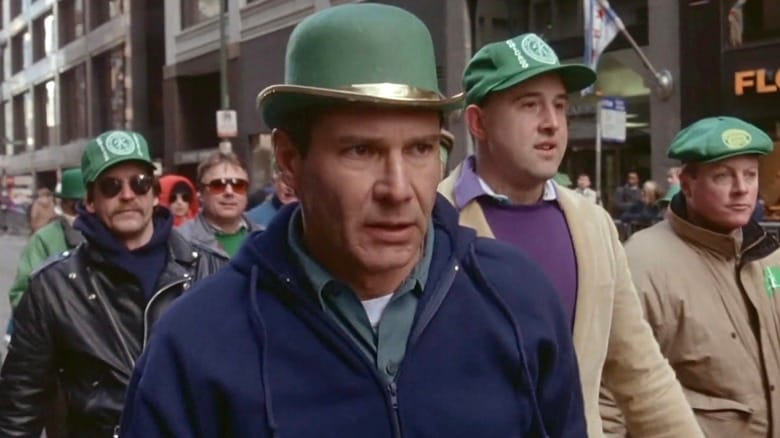
On any given day, The Fugitive is likely in my top 20 films of all time. I adore this oral history from last year and it's one of those classic films I'd still like to see in a theater someday. So it's a relief and a thrill that the novelization is good, too! It really does read like an extended version of a season of the show, which is kind of neat. (originally published 9/22/2020)
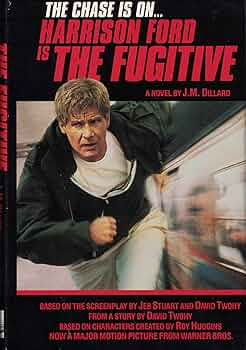
The Fugitive by J.M. Dillard (based on the screenplay by Jeb Stuart and David Twohy from a story by David Twohy; based on characters created by Roy Huggins) (Island Books, 1993)
The pitch: An Oscar-winning adaptation of the Emmy-winning ABC series, this kinetic mystery stars Harrison Ford as a doctor wrongfully convicted of his wife's murder, and Tommy Lee Jones as the hard-nosed U.S. marshal determined to capture him after he goes on the run.
The author: Like the star of our recent installment, Vonda N. McIntyre, J.M. Dillard was a notable fantasy author and key figure in Star Trek fiction, adapting almost every film in the series into a book from 1989 to 2002. Unlike McIntyre, Dillard was a pseudonym, writing original books under her own name, Jeanne Kalogridis.
The lowdown: The Fugitive may be the best adaptation of a TV show for the big screen. The figures certainly bear this out: it was one of 1993's highest-grossing movies and still the only episodic-TV-to-film project to receive a Best Picture nod at the Academy Awards. But the film really does elevate to a level of entertainment you wouldn't expect from a Columbo movie. This is owed, in no small part, to the reality stars Harrison Ford and Tommy Lee Jones bring to their parts.
On one end, Ford's Dr. Richard Kimble is an upstanding citizen stuck in an aberration of the justice system - one who doesn't let his struggle stop him from continuing to do good. On the other, Jones' U.S. marshal Sam Gerard is a sharply-honed instrument working in concert with that system - not a staunch believer in its infallibility, but with more than enough trust in the process to bring in his man as efficiently as possible. Those are Ford and Jones' archetypes to a T (and the reason Jones won a Best Supporting Actor trophy at the Academy Awards).
In past installments of Hollywood & Spine, we've seen how some screenplays have characters fully formed and ready to go when an author steps in to do a novelization - or, how the fine-tuning of performances allows for character moments and nuances that a book adaptation of a film will inevitably miss. The Fugitive is a little different: the characters are there, but Kalogridis isn't content to let the script do all the talking.
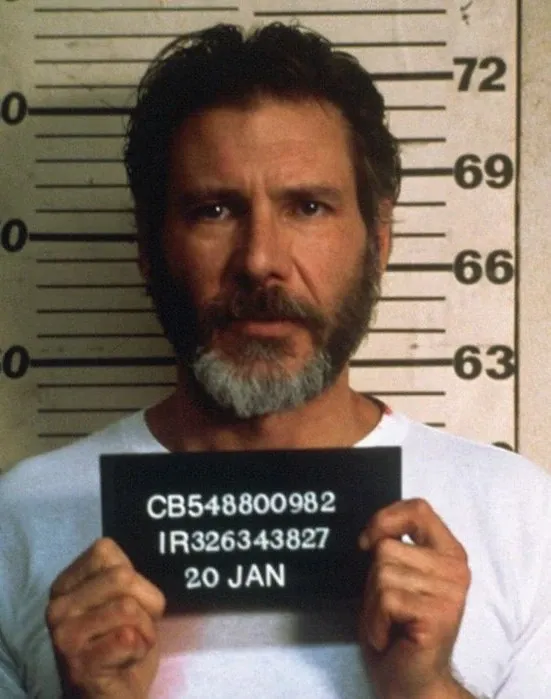
In her adaptation, Kimble is who we know from the film and how we assume Ford would play the part. He's deeply haunted by the senseless murder of his wife and the system's belief that he was the killer, and struggles with the weight of those emotions. Resignation and futility are at the front of his mind often, only for him to determinedly push past it. (One detail unused in the final film but present in the book and the original series: the couple previously lost a young child, compounding Kimble's grief in the present.) Like all of Ford's best roles, he's more everyman than superman, relying on his smarts and luck to get out of scrapes.
Kalogridis' approach to Gerard is a little different than what Tommy Lee Jones offered. Sure, there's still the attention to detail that makes him a top investigator and the cold resolve that makes him a solid foil for Kimble. (The book constantly refers to the steel that he and his band of marshals deliver in questioning and analyzing, called simply "The Look.") But spending time with Gerard in the book, it's clear that there's something about this case he can never quite shake, all the way through the end. Not long after he takes his first look at Kimble's booking photo, he can't help but notice the doctor's eyes betray...something. Not guilt, not malice, but a haunted feeling that affects Gerard despite his best intentions.
This recurring flicker of uncertainty in Gerard does amazing work in humanizing him in ways that Jones would probably scoff at. But it's necessary in prose, considering what Ford, Jones and director Andrew Davis did during production, often massaging dialogue on the fly to make it more natural than what was in the script.
Consider one of the most iconic scenes in the movie, when Kimble first comes into contact with Gerard before making a daring escape off the edge of a dam.
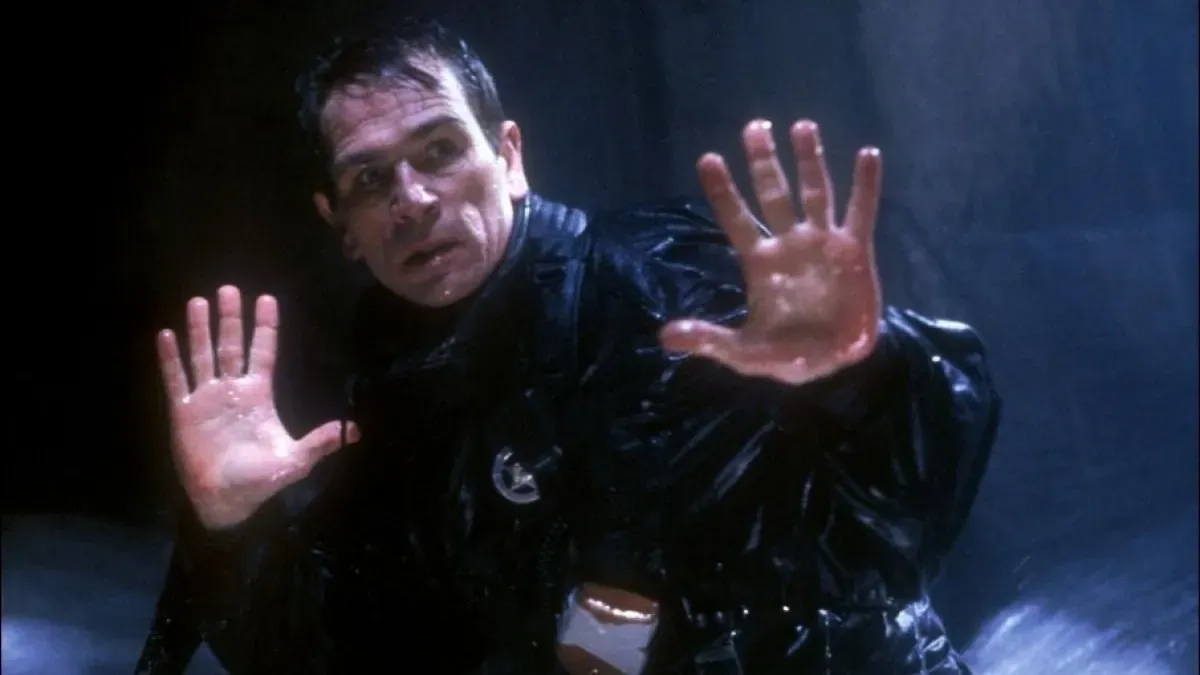
We all know the classic lines: Ford bellows, "I didn't kill my wife!" To which Jones, coolly and at the mercy of his target, responds: "I don't care." In Jeb Stuart and David Twohy's original script and the novel, Gerard's response was "Not my problem" - a recurring motif for the character, for sure, but not a particularly welcoming refrain on the page. But that shimmer of uncertainty that courses through Gerard's work - climaxing with his eventual realization that perhaps Kimble was innocent all along - keeps the reader grounded through any clunky dialogue. (One such moment for Gerard on the page: his retort of "I don't bargain" to his deputy marshal after a hostage situation nearly goes awry is written as a yell instead of a silent, determined response.)
The cutting room floor: A handful of small but pivotal sequences were excised from the final film but retained in the novelization - mostly moments that underlined Kimble's already decently-defined character and also recall the TV's episodic format, where the good doctor will do good undercover before going on the run again. For instance, we see him show warmth to a child with his family at a rest stop and diner early in his escape. (Based on the final edit, his waitress at said diner gives him a lift into Chicago during the first third of the film.) More significantly, there are additional scenes with Julianne Moore's doctor character - a young woman who shares Kimble's moral medical code and attempts to get closer to the good doctor, who's disguised as a janitor while gaining clues to his wife's murder. (In one of the more notable sequences, he nearly causes her to slip on an unmarked wet floor by mistake, raising her ire and nearly blowing his cover in the process.)
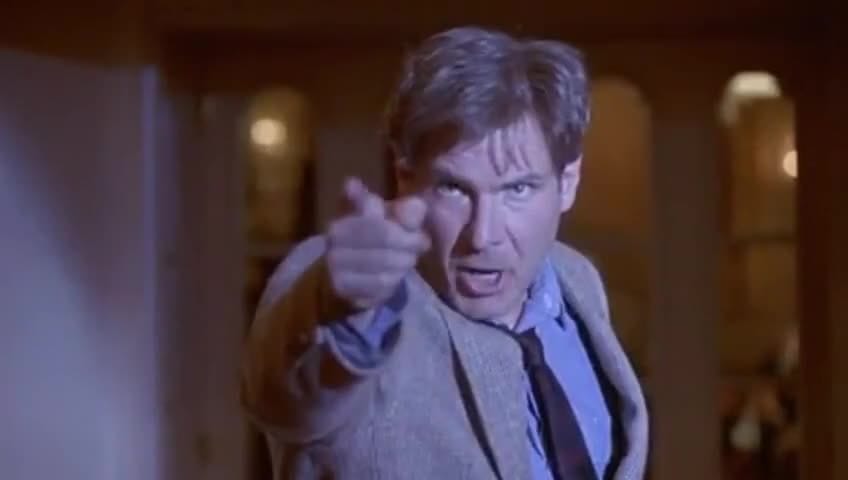
A good amount of exposition is presented in slightly different order in the book, really enhancing the whodunit nature of the story in its translation from film. The revelations about the liver drug that caused a corrupt drug company to make an attempt on Kimble's life - ultimately claiming his wife's in the process - are hidden in plain sight at the beginning of the book, in mundane fundraiser chatter or small talk during Kimble's late-night emergency surgery. By the time the cat-and-mouse action of the plot kicks in for nearly 200 pages, you might not realize you had as many clues to the one-armed man and the switched tissue samples until it's right in front of you - unless, of course, you're as smart as Kimble.
The last word: The moral backbone worthy of the original show, surprising internal character moments and taut mystery makes the novelization of The Fugitive - already one of the most entertaining films of its kind - one you won't want to bargain over.
